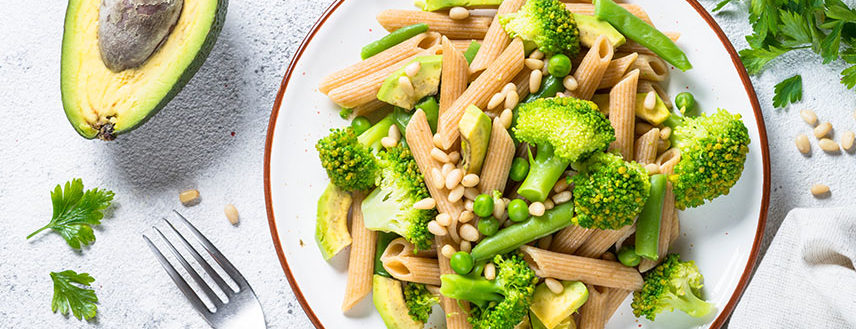
Adding more whole grains to your diet is a good idea. Not only do they provide vitamins, minerals and other nutrients needed to keep you healthy but whole grains also contain dietary fiber, which may help reduce your risk of heart disease, diabetes, and digestive difficulties, such as constipation.
Grains are divided into two subgroups: whole grains and refined grains. Whole grains contain the entire kernel — the bran, germ, and endosperm. The 2020-2025 Dietary Guidelines for Americans recommends that half of the grains you consume be whole grains, so whenever possible, you should choose those instead of refined-grain products.
How to Find Whole Grains
It’s not about the color. Being brown doesn’t make bread whole-wheat and being white may not mean that bread is made with just refined white flour. Finding whole-grain bread takes some label reading skills. Any bread labeled “whole wheat” must be made with 100% whole-wheat flour.
Unfortunately, even if bread labels advertise “seven grain” or “multigrain,” they are not necessarily whole-grain products. Read the ingredients list carefully to make sure whole-wheat flour or some other whole grain is listed as the first ingredient and find loaves made mostly with whole-wheat or another whole-grain flour.
Adding Whole Grains to Your Diet
If you want to add more whole grains to your diet, you’ll need to change your cooking style to include more whole grains and boost the dietary fiber content of meals. Pair whole grains with vegetables such as a brown rice and vegetable stir-fry or a whole-wheat pita stuffed with salad. You can also fortify your diet with high-fiber ingredients like adding bran or oatmeal to meat loaf or including cooked quinoa in a salad.
Want to get more whole grains in your diet?
- Start with breakfast. Choose a high fiber, whole-grain breakfast cereal, oatmeal, or whole-wheat toast. Check the grams of dietary fiber per serving since more fiber will keep you feeling full longer.
- Choose whole grains over refined when shopping for breads, rolls, bagels, tortillas, pasta, and other grains.
- Experiment with different grains such as buckwheat, bulgur, millet, quinoa, sorghum, whole rye, or barley. You can even swap whole wheat or oat flour for up to half of the white flour in pancake, waffle, muffin, or other flour-based recipes. Although, they may need a bit more leavening.
- Enjoy whole grains as a snack. Popcorn is considered a whole-grain and three cups of air-popped popcorn contain 3.5 grams of dietary fiber and only 95 calories. When it comes to crackers, there are many whole grain choices including rye, whole wheat and more.

Leave a Reply